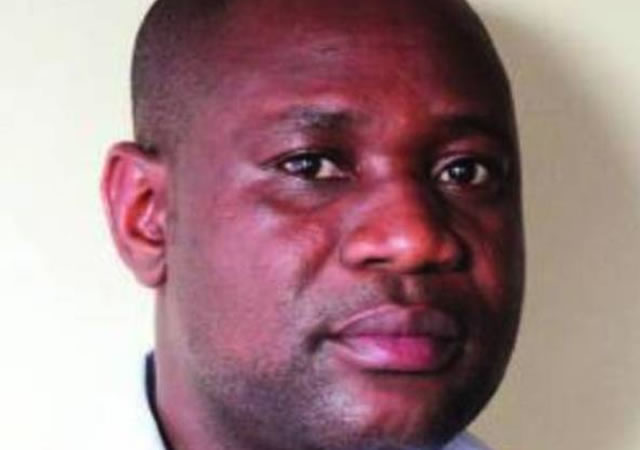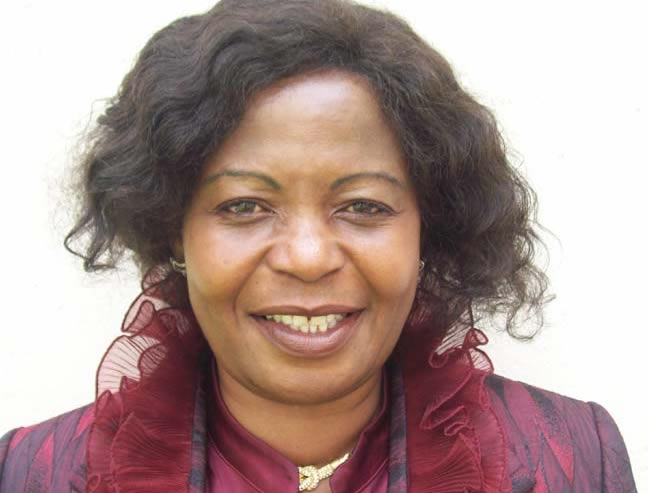Media, honest subordination

When we advise editors like Dumisani Muleya of the Zimbabwe Independent that they could do their work with a great deal of integrity if they stopped being subordinated to power, they simply cannot stand that kind of criticism.Like the politicians they often enjoy excoriating so much, people in the media tend to be immensely contemptuous in their response to institutional critique directed towards their domain.
In last week’s instalment I mentioned in passing that the Zimbabwe Independent was funded by a Western organisation I did not name at the time — the New York-registered Media Development Investment Fund (MDIF).
I also described the publication as right wing, before I dwelt on what was essentially the jinx of my article — the unceremonious departure of Joram Nyathi from the weekly paper in 2009.
I relied on publications that covered events leading to Nyathi’s abrupt departure after so many years of service to the paper, and that I did to illustrate the point that ideological conformity overrides independent objective thinking by journalists, and that the former is the major determinant in the practice of journalism today.
The Zimbabwe Independent editor was certainly less than amused by my assertions, which to him amounted to “pot shot” poundings unfairly directed at his publication. He threw a thunderous public tantrum through a furiously written “Editor’s memo” titled “Wafawarova in defiance of Reason.”
“Even though we accept the pendulum of the mind oscillates between sense and nonsense, we found Wafawarova’s unprovoked and untenable attacks in bad taste, largely because they were not based on facts, but malicious innuendo and falsehood,” he fumed.
After vehemently denying that his publication is funded by a Western organisation, he went on to state that MDIF has 39 percent stake in Alpha Media Holdings, the parent company that owns the Zimbabwe Independent, in the process exposing himself as a spurious denialist.
In refuting that the Zimbabwe Independent is right wing in its credo, the editor pathetically struggled to explain what his paper stands for, vacillating that the paper stands for “political economy, social stratification (class) and social inequality as well as justice in society,” whatever that means.
In what appears to be acute sloppiness in matters of elementary thinking, the editor labelled me a “spokesman” for Nyathi, impliedly suggesting that by writing about Takura Zhangazha, Munyaradzi Gwisai, Richard Branson and many other people mentioned as illustrative examples in that piece, I had suddenly become a spokesman for these personalities.
That would be hilarious if it were not emanating from the brains of a man whose job is supposedly to inform the public on serious matters affecting their lives.
If we were to draw a broad brush-stroke through the general media attitude towards institutional criticism, one is justified to conclude that most journalists would love to be criticised from the right, being attacked for subversively undermining power, and for going too far in their zeal to expose the shortcomings of those in power.
We have the so-called salary-gate scandal, and journalists adore it when they are attacked for undermining those in power, they just love it all. When they cross the tolerance threshold set by the power system the game plan is to admit something like it is true that in our anti-establishment zeal we sometimes go too far, but that is not our standard; or any such platitudinous statement to that effect.
It is when we criticise the media from the left that we are hated and blamed for everything we are, even for the homes from where we express our opinions.
For me it has become a cardinal sin to express my viewpoints from “the comfort of Sydney,” whatever that means.
When we advise editors like Dumisani Muleya of the Zimbabwe Independent that they could do their work with a great deal of integrity if they stopped being subordinated to power, they simply cannot stand that kind of criticism.
When we say they should stop being servile in the way they select and shape topics in order to adapt to set perspectives they respond with the kind of fury as demonstrated by Muleya’s “Editor’s memo” last week.
Today, there are right-wing attacks on the media coming from two fronts.
One is coming from a section of elites threatened by the corruption expose dominating the media at the moment, and the other is coming from the disgraced MDC-T leaders like Nelson Chamisa and Morgan Tsvangirai — the ex-media darlings of the so-called independent press, who have suddenly become the same media’s laughing stock.
The executives and elites that are crying foul over the corruption expose obviously have a lot to hide, and the media just love it when they direct their criticism towards the newsrooms. That is criticism most welcome.
We all recall how Vice President Joice Mujuru’s Chinhoyi utterances suddenly united all Zimbabwean media outlets in raucous denunciation.
As for the infantile protests from Tsvangirai and Chamisa, the media are just on cloud nine over it all, thoroughly enjoying the criticism as a sure sign that they are reporting “without fear or favour.”
But the purported objectivity is just a huge fraud. Morgan Tsvangirai and Chamisa have not changed in any way, neither for the better nor for the worse.
Politically, they are as depth-less today as they were in 1999, and ideologically they are just the discombobulated lot we have always known them to be. What has essentially changed is that Tsvangirai has squandered the artificial myth of invincibility created around his character by the very media houses relentlessly attacking him today.
If the Western-mooted regime change agenda had been achieved or was still on course, none of Chamisa’s miserable boot-licking politics or Tsvangirai’s excessive democratic and moral shortcomings would matter to the media houses fronting the character destruction of these politicians today.
Equally, some of the fingered ZANU-PF politicians who have been named in corrupt dealings are not exactly new discoveries. The public media have had significant hints on corruption well before the ZBC saga was brought into the public domain, or before the PSMAS corruption exposure, but the frank truth is that there was a time such divulgence could not be easily tolerated by power — all because of the precarious politics of the time.
We are coming from an era of political polarity where criticism of MDC-T leadership has for long been seen as fighting democracy, while criticising ZANU-PF leadership in the last 12 years increasingly became synonymous with being unpatriotic.
The politicians loved it. That is the era that created the impunity making our leaders immune to criticism as they shamelessly do today. Sadly, our media helped much in creating it all.
There is no greater democracy than free thought and free expression, but Elton Mangoma will testify that even in a proclaimed democratic movement, free speech directed at power can be devastatingly costly.
There is no greater patriotism than exposing the threat of corruption to one’s society, but editors fronting this noble drive will confess that they have no good reason to expect lengthy periods of service in their positions, especially those in the public media. Fears for dire consequences are not unfounded, and neither are they unprecedented.
We can be victims of serious illusions if we do not look at issues critically. Now it would appear like the private media are vigorously unsympathetic to the opposition MDC-T, especially to its leader Tsvangirai. It might also look like The Herald is uncompromisingly unsympathetic to state power at the moment. These are fairly sensible observations to make.
While the private media are certainly unsympathetic to Tsvangirai, they are still resolutely behind the Western regime change agenda for years fronted by the disgraced Tsvangirai. That has to be noted.
The Herald is still nationalistic in editorial policy, very much opposed to the imperialist regime change agenda. The corruption expose by the paper does not in any way reflect a shift in editorial policy. That also must be noted.
Many people are resigned to the fact that we are always going to have people entrenched in power, who want to preserve that power, and who will use all the means at their disposal to do so. The argument these people proffer is that apart from sitting and complaining about it, we can do absolutely nothing about it.
But colonialism would still be ruling us if all people did was to sit and complain about it. We did a lot more than sit and complain, and that is why we have independent countries making the Africa of today.
We hear so much from power about the need for constructive criticism. The question is criticism to construct what? If constructive criticism leads to the point where mass popular movements determine the direction of political regimes, then there is hope in constructive criticism. But not when criticism leads to power perpetually sinning unabated.
When constructive criticism leads to the expansion of patronage and corruption tentacles then we will have an isolated mass ruled by a power-obsessed elite. That is what is not acceptable, and we have to fight by the pen to ensure that we do not get to the dangerous point where those in power will get our people to believe anything told to them through our media.
In general, the media serve two critical functions. First, to indoctrinate the elites, to make sure they have the right ideas, and that they know exactly how to serve power. As I pointed out last week, the elites are the most indoctrinated among our people, so exposed to sophisticated propaganda because they are the ones that are allowed in the decision-making process.
The mainstream media, the conventional educational and training system, and the corporate culture, all tame them into the pliant characters they inevitably become.
The second function of the media is simply to get rid of the bewildered masses — to marginalise and eliminate the ordinary people so they do not meddle with the decision-making process.
That is easily achievable by distracting people with weird TV programmes, sex and violence movies, miracle news and other religious extremities, superstition, comedy shows, soccer, and so on and so forth. If our people can escape all this indoctrination and distraction, then there is hope for a more accountable governance system.
Zimbabwe we are one and together we will overcome. It is homeland or death!!
REASON WAFAWAROVA is a political writer based in SYDNEY, Australia.








Comments